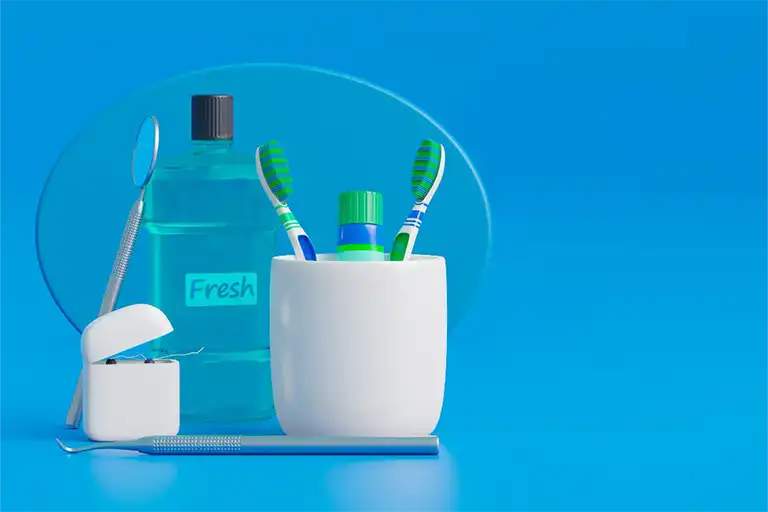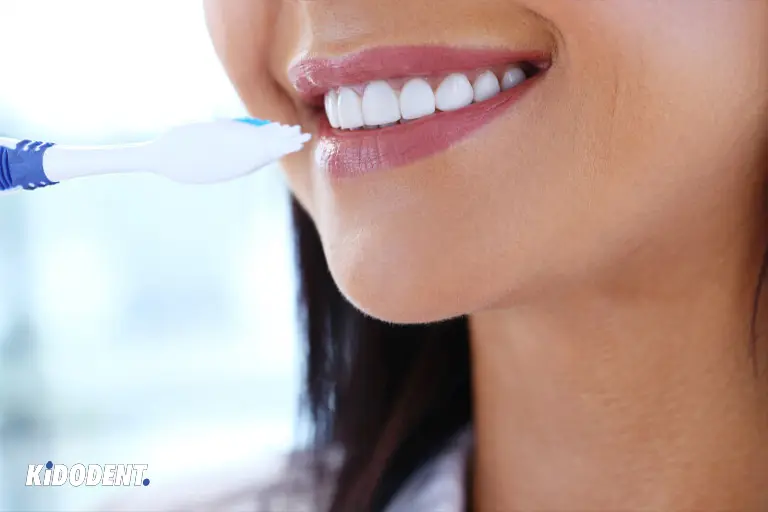Having clean and healthy teeth is important for everyone, but usually we do not put much effort into keeping them healthy. Instead, we spend a lot of money annually on treating oral and dental problems, tooth filling, tooth extraction, veneers, and other dental services. In this article, we will discuss some key oral health practices and habits to ensure your teeth function and look great and your smile glow as ever.
What to do for healthy teeth and mouth?
To have healthy teeth, you should always try to take care of them. Even if a person genetically has white and neat teeth, they should clean them carefully every day and pay attention to their oral health. It is very important to take good care of teeth, use quality products, and have correct habits.
1-Don’t forget to brush your teeth before going to bed
It is generally recommended that you brush your teeth at least twice a day to have healthier teeth. Many of us still neglect to brush our teeth at night. But brushing your teeth before going to bed destroys many germs and plaque that have accumulated on the surface of the teeth during the day.
2-Brush thoroughly
When you brush, you want to be thorough but not rough on your teeth or gums. Be sure to clean all parts of the teeth (back, front, sides, and top) with your toothbrush facing your gums at about 45 degrees.
3-Change your toothbrush regularly
Throw away your toothbrush every two or three months, and if you use an electric toothbrush, change its head. Otherwise, you have transferred the bacteria back into your mouth.
4-Use toothpaste containing fluoride
When it comes to toothpaste, there are other important elements to look for in white power and flavorings. No matter which version you choose, make sure the toothpaste contains fluoride.
Fluoride is a key ingredient to help with remineralization of teeth and preventing cavities. It remains a mainstay in oral health. This is because fluoride is a defense against tooth decay. It works by fighting the germs that lead to decay as well as creating a protective barrier between your teeth.
5-Use dental floss
Flossing can remove plaque and bacteria from between the teeth, where a toothbrush cannot reach. It can prevent bad breath by removing the food stuck between the teeth.
Using dental floss increases blood circulation in the gums, which has a positive effect on the gum bone spur pictures. It also reduces plaque accumulation and prevents soft tissue inflammation in the mouth.
6-Consider mouthwash
Mouthwash may seem essential for oral health, but many people skip it entirely. Using mouthwash when recommended by your dentist can help you in three ways. First, it reduces the amount of acid in the mouth, cleans the hard-to-brush areas in and around the gums, and finally remineralizes the teeth.
Mouthwash is especially helpful for children and the elderly, where brushing and flossing may be difficult. However, it isn’t at all a replacement for brushing or flossing.
Ask your dentist for specific mouthwash recommendations. Specific brands are best according to your dental needs and with sensitive teeth.

7-Clean your tongue
Plaque and bacteria can also build up on your tongue. Not only can this lead to bad breath, but it can also cause other oral health problems.
You can use a tongue brush or scraper to keep your tongue as clean as possible.
8-Protect your teeth from injury
Dental injury is especially common if you’re an athlete. Always use a mouthguard when playing contact sports to decrease the chance of something happening to your teeth.
Also, chronic teeth grinding (bruxism) can damage your teeth. If you notice you grind your teeth while sleeping or even during the day, your dentist can prescribe a night guard to help protect your teeth from the grinding effects. Another way to prevent injury is never to insert objects in your mouth to clean your teeth, which can do more harm than good.
9-Drink more water
Water is still the best drink for your overall health, including oral health. Drinking water after every meal is recommended because it can help wash away some of the negative effects of sticky and acidic foods and drinks between the teeth.
10-Limit sweet and acidic foods
Eventually, sugar turns into acid in the mouth, which can erode your tooth enamel. It is these acids that lead to cavities. Acidic fruits, tea, and coffee can also destroy tooth enamel. While you don’t necessarily have to avoid such foods completely, it doesn’t hurt to be careful. A high-sugar diet accompanied by poor oral hygiene speeds up tooth decay and prevents you from having healthy teeth.
The ADA recommends utilizing a straw or swishing water in your mouth to help break down the acids.
11-Don’t use your teeth to tear things or open packaging
If you need to open a package and don’t have scissors on hand, it might be tempting to use your teeth. However, teeth are for chewing and breaking down food only. Using them for other things increases your chance of injury.
12-See your dentist for regular check-ups
We recommend having a dental appointment every six months to keep your oral health in tip-top shape. Dentists will clean your teeth, check for cavities, and advise you on oral care best practices such as the proper brushing and flossing techniques.
